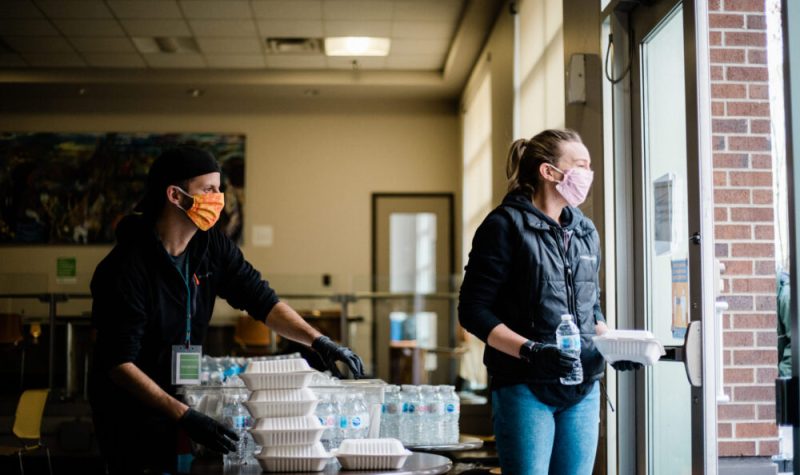By David P. Ball
Public health authorities in B.C. have called on Vancouverites to stay inside with windows closed, and to avoid prolonged time outdoors, until the wildfire smoke risk abates. Strenuous exercise should be avoided, and air filters deployed.
But for the thousands of homeless in the Downtown Eastside (DTES), those measures simply aren’t possible if one doesn’t have a home – especially since so many drop-in services closed down for COVID-19.
Several are now opening up emergency smoke shelter spots. Meanwhile the city is funding expanded hours for three day time drop in centres As well as a floor of the public library’s second branch — to serve as “clean air” facilities to get out of the smoke.
Jeremy Hunka, of Union Gospel Mission, told The Pulse on CFRO he is very worried for the disproportionate number of DTES residents, particularly the homeless, because of high levels of respiratory illness and other health vulnerabilities.
He talked about the dangers to Downtown Eastside residents' health from the wildfire smoke and how you can protect yourself — amidst an alleged "wave" of local COVID-19 cases that has not been publicly revealed but only came to light because of nonprofit organizations speaking out and raising alarms.
The symptoms between coronavirus and smoke inhalation can be similar, provincial health officer Dr. Bonnie Henry said Monday. One key difference is smoke doesn’t cause muscle aches or fever, she noted, unlike COVID-19.
UGM’a Hunka urges a more transparent approach to informing the “especially vulnerable” DTES community about any COVID-19 cases, despite reluctance by authorities to pinpoint infections to small areas and neighbourhoods. Even city-wide data was not publicly available until recently.


